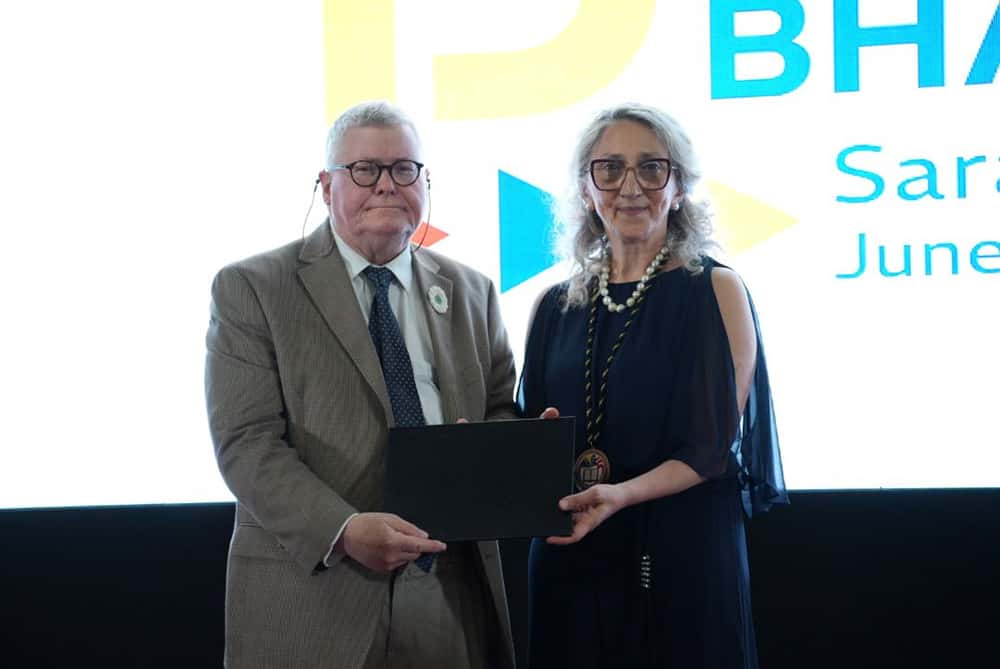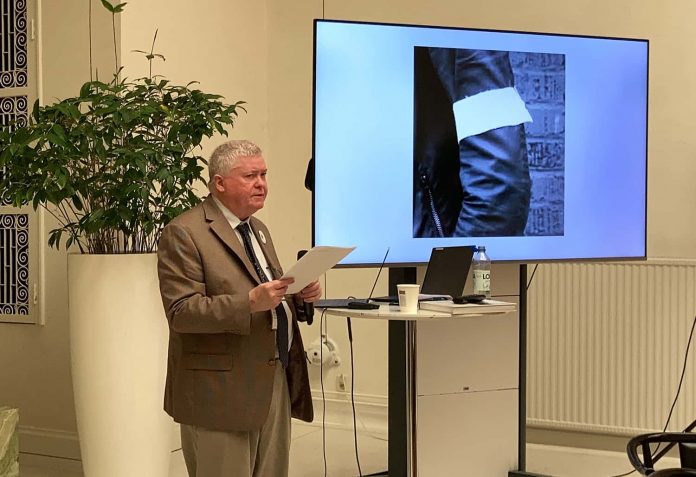Each May 31, Bosnia and Herzegovina nationals and human rights advocates worldwide mark “White Armband Day.” This honors the memory of 3,280 individuals, including 102 children, who lost their lives in the Balkan municipality of Prijedor during ethnic cleansing that commenced on that date in 1992.
Bosnian Serbs in Prijedor ordered Bosnian Muslims (Bosniaks) to wear white armbands so that they could be identified for deportation to concentration camps in the region. Non-Serbs were also compelled to mark their homes with white flags, foreshadowing the violence they would endure, which included systematic executions, rapes, and torture.
“Since survivors are prevented from installing memorials, in 2012 they began to wear the white armband and observe White Armband Day as a form of resistance to denial, to commemorate the suffering in the camps, and to remember the victims,” said CSU Professor and Philosophy Department Chair David Pettigrew, who has spent decades advocating for the survivors of the atrocities and counteracting the genocide denial prevalent among regional Serb authorities.
Recently, Pettigrew was invited to speak at the Swedish Parliament [Sveriges Riksdag] by Member of Parliament Azra Muranović and Bosnia’s Ambassador to Sweden Bojan Šošić. Muranović is a refugee from Bosnia—from the town of Kozarac where she survived the threat of execution and then was detained in Trnopolje concentration camp when she was about 5 years old.
The program included a presentation by a French photographer, Fabrice Dekonink, and a presentation by Satko Mujagić, a survivor of Omarksa and Manjača concentration camps.
In addition to members of Parliament, the program was attended by members of the diplomatic community, and Pettigrew met ambassadors from Armenia, Austria, Croatia, Kosovo, and Palestine.
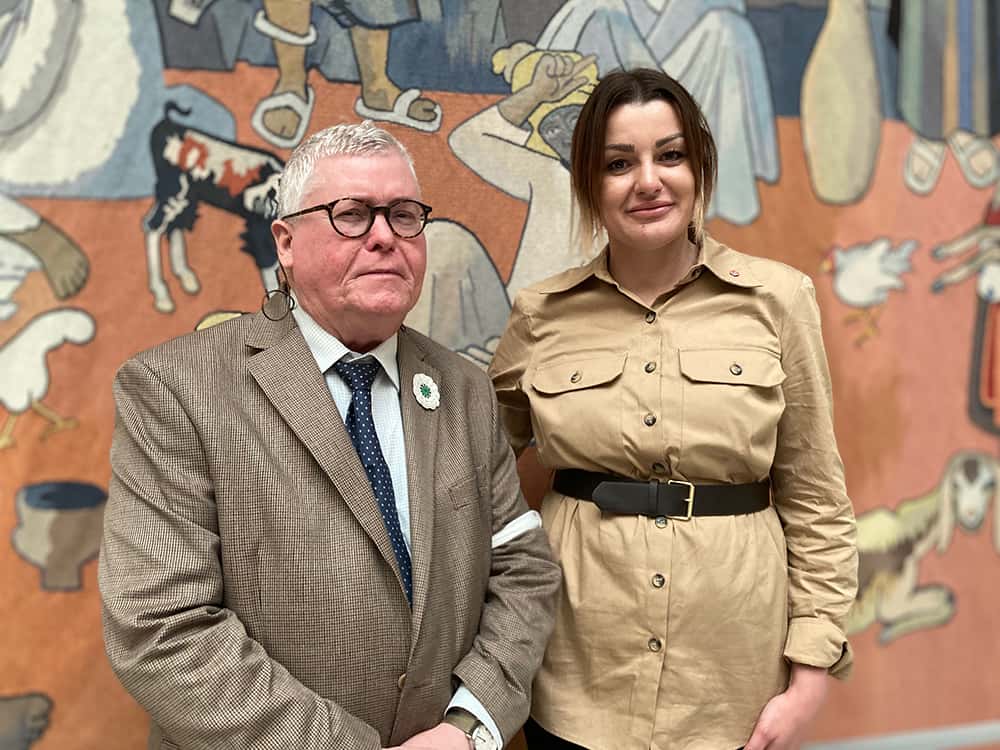
“My assignment was to provide an academic analysis of the Judgements of the International Criminal Tribunal for the former Yugoslavia that are related to the concentration camps in the Prijedor area,” Pettigrew said. “The Tribunal Chambers found patterns of criminal behavior including ‘Joint Criminal Enterprises’ whose goal was the permanent removal of the Bosnian Muslims from Bosnian Serb territory in pursuit of a ‘Greater Serbia.'”
The war crimes committed in the camps in the Prijedor area led to the first convictions and the first determinations of the eliminationist plan in pursuit of “Greater Serbia,” said Pettigrew, who argued recently in his testimony to a European Union Parliamentary Committee for the need to accelerate Bosnia’s accession to the EU as a matter of restorative justice.
In his lecture at the Swedish Parliament he also shared details from his research of the glorification of convicted war criminals at former atrocity sites, where survivors have been prevented from installing memorials to the victims. On June 23, 2024, Pettigrew will speak during a commemoration at the former site of the Barutni magacin concentration camp in Kalinovik (Republika Srpska in Bosnia).
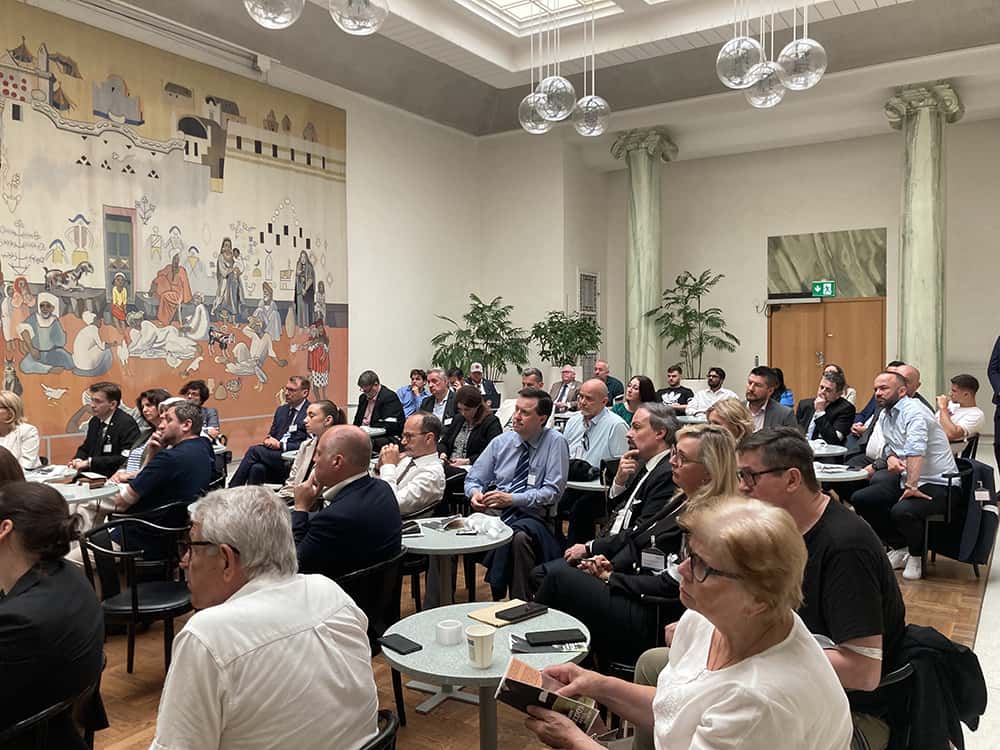
“The survivor association invited me to speak at the commemoration because of my efforts to raise awareness about the fact that the convicted war criminal Ratko Mladić is glorified in the town and the survivors have been prohibited from installing memorials,” Pettigrew said. “They fear that they will soon lose the right to hold these annual commemorative visits to the atrocity sites.”
When asked about his motivation, Pettigrew responded, “In the course of my research and human rights activism in Bosnia, I have been constantly inspired by young people like Azra Muranović who lived through these atrocities in the ’90s. They have somehow kept their hearts open to the hope that bearing witness to their traumatic experiences, and raising awareness about the truth, will counter the threat of denial and the glorification of war criminals, and nurture a culture of remembrance as a form of restorative justice. It has been an honor for me to be able to support Azra and other survivors in this hope.”
Pettigrew’s advocacy efforts have also received recognition locally. Earlier this year he was recognized by the Connecticut General Assembly for work to raise awareness in the state about the Holocaust and genocide — particularly about the Bosnian Genocide. Part of this outreach includes working with teachers as they integrate Holocaust and genocide education into the social studies curriculum in Connecticut public schools.
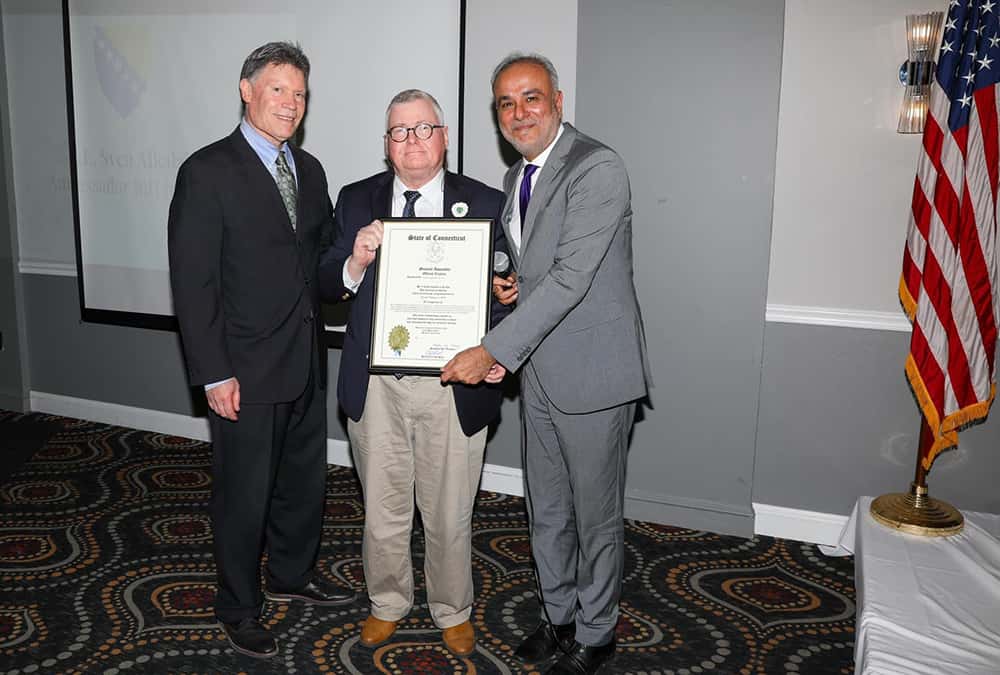
During Pettigrew’s trip to Bosnia, he was inducted into the Bosnian-Herzegovinian-American Academy of Arts and Sciences (BHAAAS) at their annual meeting in Sarajevo. The mission of the BHAAAS is to develop and advance the arts and sciences among the Bosnian-Herzegovinian diaspora and in Bosnia and Herzegovina. Its vision is to become a leading network for professional and academic advancement of future generations of Bosnian-Herzegovinian-Americans, Bosnian-Herzegovinians and friends of Bosnia and Herzegovina throughout the world.
On the day following his induction, Pettigrew attended the 32nd anniversary of the killing of Bosniak civilians in Kalinovik, where he gave a speech calling for the right of the survivors to erect memorials at crime sites where they are prohibited.
